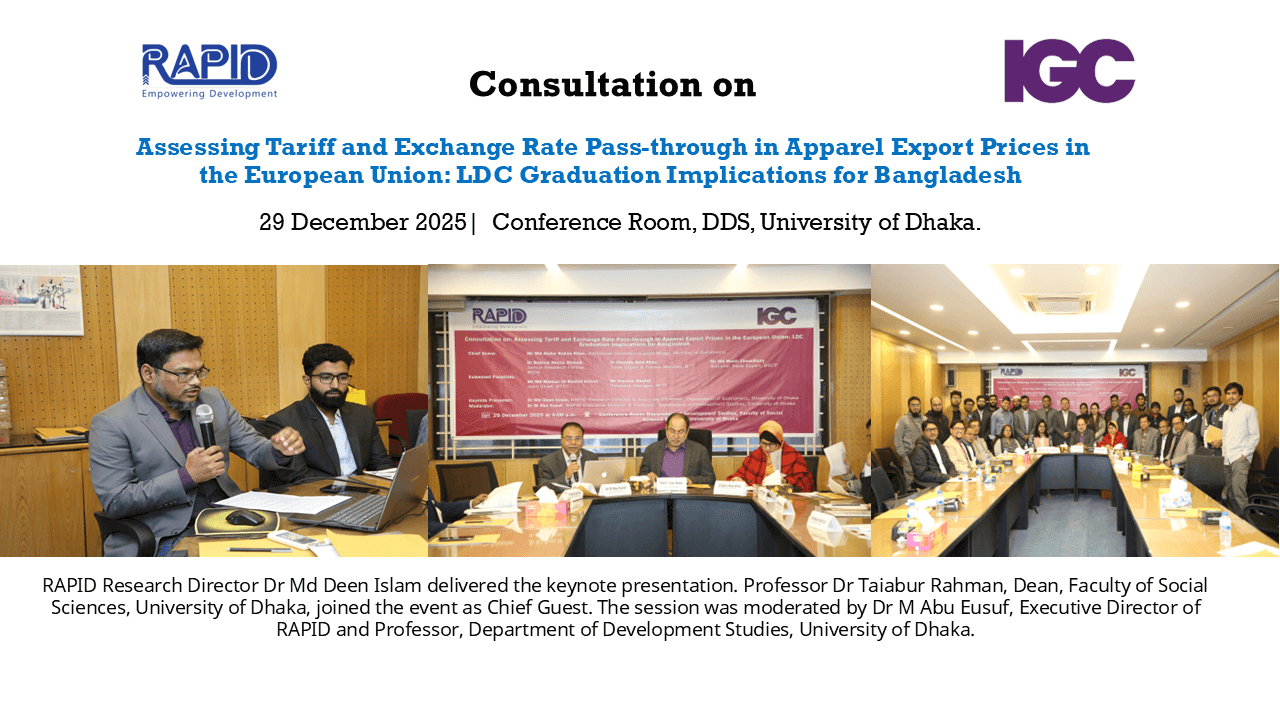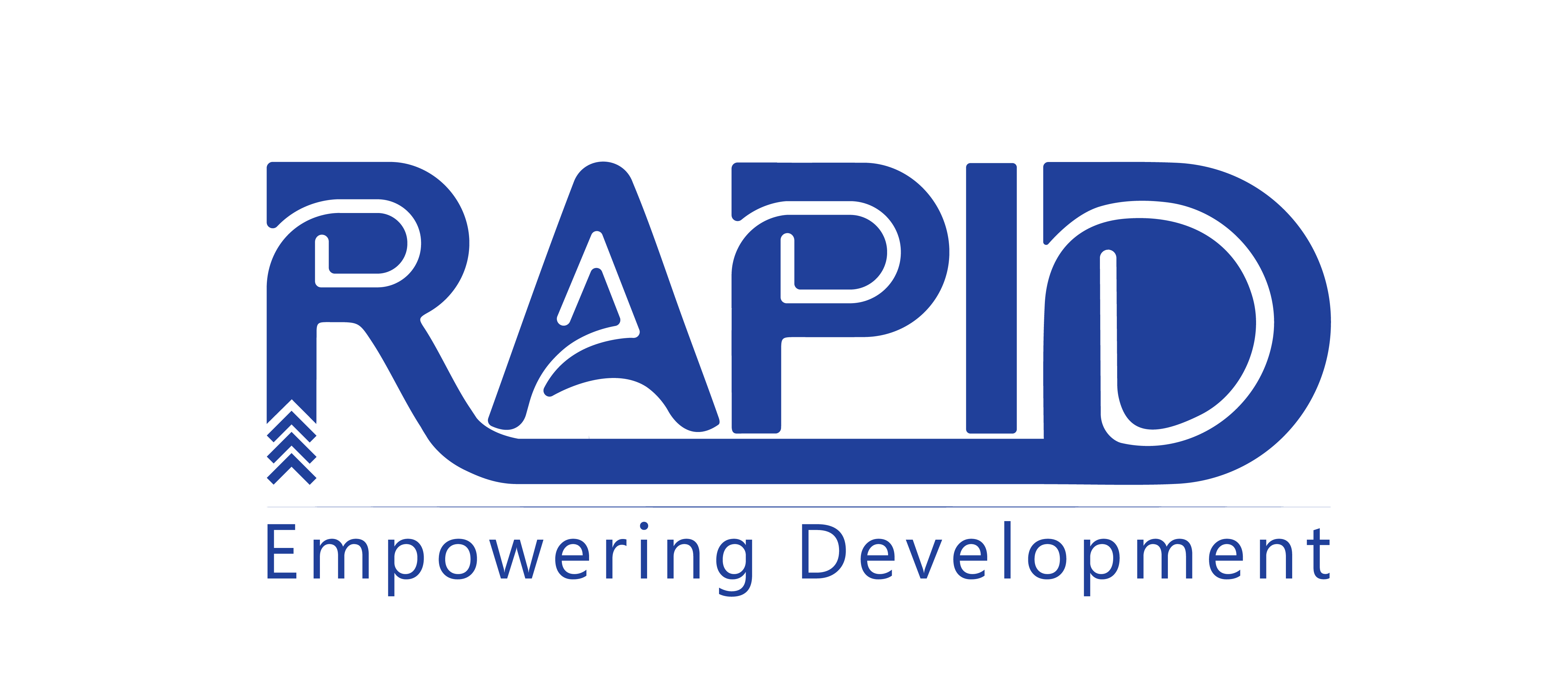
Working Paper || 2025|| Econometric results show that informal networks, prior awareness, and unofficial payments play a significant role in determining access to benefits—lowering exclusion but increasing the risk of inclusion errors.

The Fading Demographic Dividend: Growing Old Before Getting Rich?
Assessing Tariff and Exchange Rate Pass-through in Apparel Export Prices in the European Union: LDC Graduation Implications for Bangladesh
Contents
About the project
Partner: International Growth Centre (IGC).Project duration: 12 June 2025 – 30 November 2025.
A key policy implication arising from the previous IGC project (BGD-23078) is that importers retain a substantial share of tariff preferences granted to supplying countries, commonly referred to as tariff passthrough. Consequently, following Bangladesh's graduation from LDC status and the subsequent erosion of preferences, importers may find themselves obligated to surrender some of the previously enjoyed preference rents. This, in turn, could result in importers absorbing a portion of the price shocks arising from tariff increases. This project aims to assess the extent to which changes in tariffs and exchange rates impact import prices, specifically focusing on RMG exports from Bangladesh and its competitor countries in the EU market. By examining the pass-through rates of these economic variables, the study will explore the benefits derived by Bangladeshi apparel exporters from the EU’s unilateral trade preferences and determine the extent to which these benefits (preference rent) are captured by importers.
The analysis is important for three key reasons:
- By evaluating how tariffs and exchange rate adjustments affect import prices, policymakers and exporters can better understand Bangladesh’s export competitiveness. If the benefits of tariff reductions or currency depreciation are passed through to EU consumers as lower prices, Bangladeshi exporters may gain a competitive edge over suppliers from other countries.
- The degree of pass-through has implications for exporters’ profitability, impacting their capacity to reinvest and grow their businesses.
- For policymakers, understanding pass-through rates is essential for formulating effective trade policies. A low pass-through rate may indicate that reductions in tariffs or currency depreciation do not significantly benefit exporters, necessitating additional support measures.
Project activities
Consultation: Assessing Tariff and Exchange Rate Pass-through in Apparel Export Prices in the European Union: LDC Graduation Implications for Bangladesh
On 29 December 2025, RAPID, with support from the International Growth Center IGC Bangladesh, organised a consultation event to share the findings of the study on 'Assessing Tariff and Exchange Rate Pass-through in Apparel Export Prices in the European Union: LDC Graduation Implications for Bangladesh'.
Professor Dr Taiabur Rahman, Dean, Faculty of Social Sciences, University of Dhaka, joined the event as Chief Guest.
Dr Md Deen Islam, RAPID Research Director & Associate Professor, Department of Economics, University of Dhaka, delivered the keynote presentation.
The session was moderated by Dr M Abu Eusuf, Executive Director, RAPID & Professor, Department of Development Studies, University of Dhaka.
As distinguished Panelists, we were joined by Dr Badrun Nessa Ahmed, Senior Research Fellow, BIDS; Mr Harunur Rashid, Research Manager, BFTI; Mr Md Munir Chowdhury, National Trade Expert, BRCP; and Mr Md Mamun-Ur-Rashid Askari, Joint Chief, BTTC.


